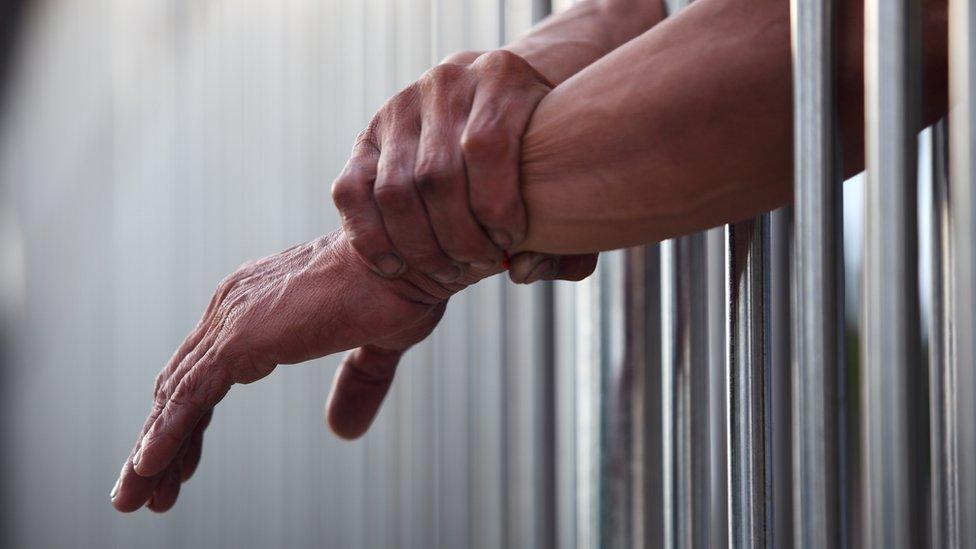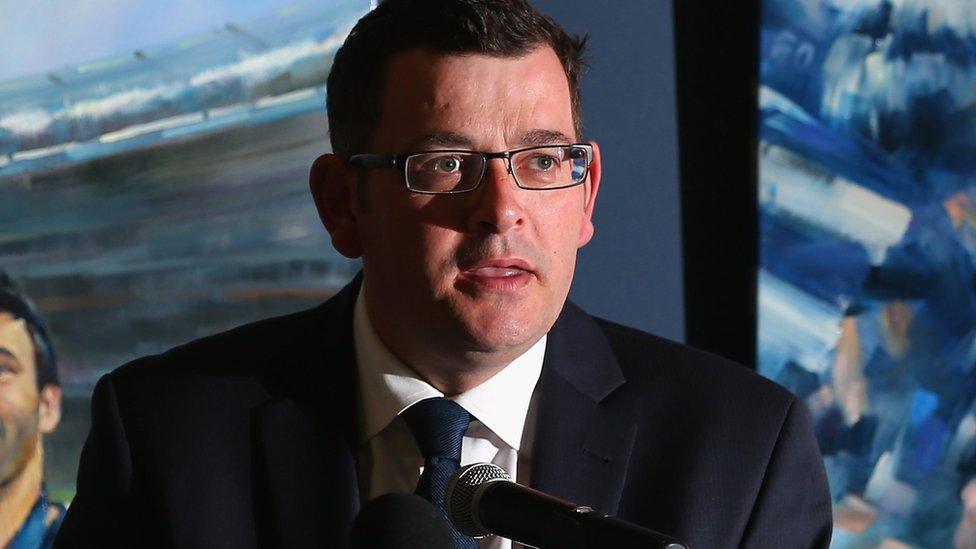Australia debates handing murderers' pensions to victims
- Published

The policy is designed to give crime victims more rights
Murderers and other criminals would be forced to give their superannuation pension to victims' families under a proposal in Australia.
The move would give victims more rights in the justice system, said Victoria's opposition leader Matthew Guy.
Mr Guy said he would take the policy to the state's next election in November 2018.
If legislated it would be an Australian first, Mr Guy's office said.
"When someone commits a murder, particularly in horrendous circumstances - takes the life of another individual - they forfeit their right to be treated like the rest of us," the opposition leader said on Tuesday.
Superannuation in Australia, external is money earned during a person's working life that can only be accessed in retirement.
Currently under Victoria state law, victims' families can claim money from seized criminal assets, but that excludes superannuation.
Reform recommendations
The announcement comes after the Victorian Law Reform Commission, a government-funded advisory body, tabled a report in November called The Role of Victims of Crime in the Criminal Trial Process.
The report made 51 recommendations, which did not include handing criminals' superannuation to the families of victims.
Victoria's Labor government, led by Premier Daniel Andrews, is still considering its response to the report, but Mr Guy said his party supported most of the recommendations.

Victoria's government, led by Daniel Andrews, has raised concerns over the proposal
Responding to the superannuation proposal, the government said existing laws allowed for families to be compensated.
"The accrued superannuation of a prisoner could not be used to compensate victims without substantial changes to Commonwealth legislation," state attorney-general Martin Pakula told The Age.
"It could also mean that victims wait decades for compensation and that ex-crooks rely more heavily on taxpayers to fund their retirement."
State or federal issue?
Mr Guy said if elected he would lobby the federal government for change, saying he had already briefly raised the issue.
"This would require a state-federal partnership to make it work," he said.
But a spokesperson for the federal attorney-general's department said it was a state issue.
"It is a matter for state and territory governments whether to seize the assets of criminals convicted of state offences," the spokesperson said in a statement to the BBC.